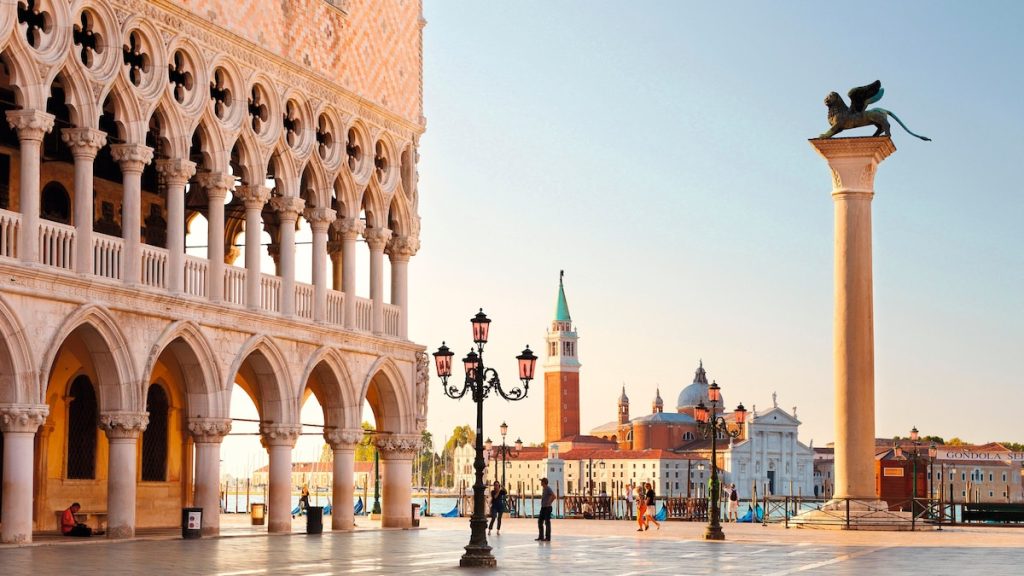This article was produced by National Geographic Traveler (UNITED KINGDOM).
Inflation is on everyone's mind. Along with booming post-pandemic demand, this has driven up holiday prices – made worse by conflicts in Eastern Europe and the Middle East, which have triggered soaring fuel prices and shortages supply. Between July 2023 and July 2024, the cost of a package holiday in Europe increased by an average of 6.6% according to the European agency Eurostat, and similar trends are predicted for flights and hotels. From 2025, incidental costs are also on the horizon, such as new tourist taxes. But is all this bad news?
What makes flights cost more?
In its October 2024 Budget, the UK government announced that from 2026 air passenger taxes on anyone aged over 16 would increase by around 15% to “account for high inflation anterior”. Although the tax on domestic and short-haul flights – economy class, £8 and £15 respectively – seems modest, it amounts to £102 and £106 each way for medium and long-haul. Meanwhile, France has proposed tripling its air travel tax from 2025 to address a budget deficit, with the price of an economy class ticket up to £33 more expensive for long hauls, and Denmark will launch a new flight tax in 2025 as part of its green transition. — this plan will come into force gradually and cost up to £45 by 2030. Although paid for by airlines, the cost is ultimately passed on to passengers.
What else?
After some versions of the Boeing 737-9 MAX were grounded for safety reasons in January 2024, the U.S. Federal Aviation Authority barred manufacturer Boeing from increasing production, hampering the company's ability to meet delivery schedules. Airbus has also struggled to meet its schedule due to a shortage of engines and other components. The resulting lack of new aircraft has impacted airlines around the world, with insufficient supply to meet customer demand, ultimately leading to higher prices for consumers.
What about the green transition?
From 2027, most flights will be subject to the International Civil Aviation Organization's carbon offset and reduction program, which requires airlines in its 126 member states to offset growth in carbon emissions. CO2 above set levels. EU airport fuel suppliers will also have to increase the share of sustainable aviation fuel in their blends – from 2% from 2025 to 70% by 2050.
All of this will result in additional costs, partly due to necessary technology upgrades. But Martin Nolan, Skyscanner's sustainability expert, says it should only have a “modest impact” on passenger fares. “Ultimately, supply and demand will always be the key factor when it comes to ticket prices,” he says.
And hotel prices?
Booming around the world since 2022, the trend of “revenge travel” – making up for lost time post-pandemic – has pushed demand to record highs. But there are other reasons for this. In Japan, for example, the weak yen has boosted inbound travel and therefore demand, particularly from its East Asian neighbors. In New York, government policy has reduced supply. Previously, Airbnbs accounted for 10% of accommodations, according to the New York Times, but recent crackdowns on short-term rentals have forced a return to hotels, increasing demand. Rising operating costs caused by post-Covid staff shortages and soaring energy prices have also forced operators to increase prices.
While room rates will continue to rise in 2025, the latest Hotel Monitor report from Amex GBT Consulting predicts that they are expected to stabilize thanks to a record number of properties under construction worldwide. More than 2,500 new hotels are expected to open by the end of 2024, with an additional 2,700 by the end of 2025.
Are there other fees ?
Tourist taxes have become commonplace and Thailand will join the list of more than 60 paying destinations from mid-2025. Meanwhile, in Venice, the daytrip tax introduced last April will increase from €5 (£4) to €10 (£8) in April 2025 for those who do not pay in advance. “I see beach destinations, not just cities, implementing tourist taxes soon,” says Paul Scott, founder of My Budget Break.
More and more countries are also using electronic travel authorizations to screen arrivals, including the United States, Canada and New Zealand. The EU is expected to launch its long-delayed version, the European Travel Information and Authorization System (ETIAS), in 2025. Users will pay €7 (£6) every three years to keep their ETIAS valid.
To subscribe National Geographic Traveler (UK) click on the magazine here. (Available in certain countries only).


